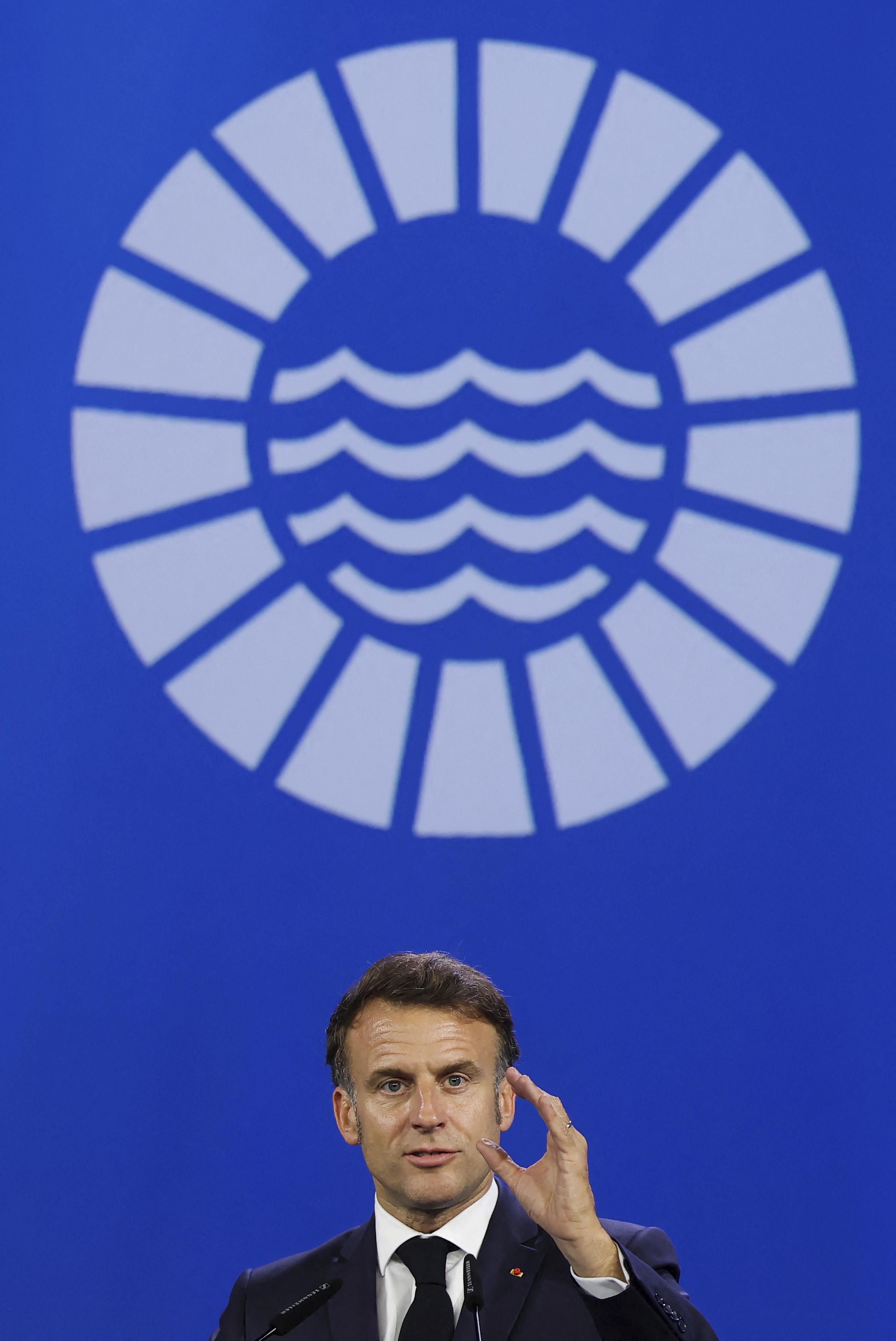President Emmanuel Macron has advocated for the future of renewable energies in France against the harassment from right-wing parties and the Interior Minister, Bruno Retailleau, who this week distanced himself with a column in Le Figaro calling for an end to public subsidies for solar and wind energies.
"France needs renewables to achieve carbon neutrality by 2050," Macron emphasized. "It is not a good idea to say that we will no longer use renewable energies in our country, that we will no longer invest."
The French President also criticized his Prime Minister, centrist François Bayrou, urging him to "lead his government" and to "care for the policies they implement." "If we start having ministers taking care of everything, it is no longer called a government," Macron stressed, referring to the distancing of Bruno Retailleau, recently elected leader of the Republicans and potential candidate for the 2027 presidential elections.
"Wind and solar energy only contribute an expensive intermittency to the French energy mix," Retailleau wrote in the conservative newspaper. "There is therefore no reason to continue financing them with public subsidies."
"What we are saying is common sense: nuclear energy must remain the backbone of a low-carbon, economical, and controllable energy," Retailleau wrote on his X account. "It is very curious to criticize the right for a stance on energy that I have always maintained and even defended in a book years ago."
The specter of a moratorium on solar and wind energy has been looming over the French political spectrum for several days following the debate on the energy and climate programming law proposal in the National Assembly on June 24. Despite the majority rejection of the text, the far-right (National Rally) voted in favor, and the traditional right (The Republicans) preferred to abstain.
The major blackout on April 28 in Spain has been politically used to revive opposition in France to wind and solar energy, which contribute to 8.7% and 4.6% of electricity production, respectively. Nuclear energy, with 18 plants and 57 operational reactors throughout the country, accounts for between 57% and 67% of the electricity mix.
Right-wing parties have also questioned the zero emissions target in recent months, supported the elimination of low-emission zones, and promoted a relaxation of environmental laws. Environment Minister Agnés Pannier-Runacher, from the "Macronist" Renaissance party, accused the far-right of "using ecology to divide the country."
In an interview with Le Monde, Pannier-Runacher criticized her cabinet colleague Bruno Retailleau for "undermining the renewable sector" and described his column as "absurd and dangerous from an industrial, economic, social, and geopolitical perspective."
Macron himself, who in 2022 announced in a speech in Belfort his intention to "revive nuclear energy and develop renewable energies," recently expressed his concern about the environmental backtracking promoted by right-wing parties: "The rhetoric I have heard these days has bothered me a lot: they want to retract by saying, 'Let's abandon ecology and our ambitions to preserve the economy'."
"This is incorrect!" declared the French President. "We can create jobs, in fact, we have created over two million in recent years, while quadrupling emissions reductions. So we must not regress or undo all of this."
